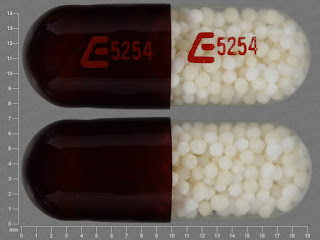Adderall
What is Adderall?
Adderall contains a combination of amphetamine and dextroamphetamine. Amphetamine and dextroamphetamine are central nervous system stimulants that affect chemicals in the brain and nerves that contribute to hyperactivity and impulse control.
Adderall is used to treat attention deficit hyperactivity disorder (ADHD) and narcolepsy.
Adderall may also be used for purposes not listed in this medication guide.
Warnings
Adderall may be habit-forming, and this medicine is a drug of abuse. Tell your doctor if you have had problems with drug or alcohol abuse.
Stimulants have caused stroke, heart attack, and sudden death in people with high blood pressure, heart disease, or a heart defect.
Do not use this medicine if you have used a MAO inhibitor in the past 14 days, such as isocarboxazid, linezolid, phenelzine, rasagiline, selegiline, or tranylcypromine or have received a methylene blue injection.
Adderall may cause new or worsening psychosis (unusual thoughts or behavior), especially if you have a history of depression, mental illness, or bipolar disorder.
You may have blood circulation problems that can cause numbness, pain, or discoloration in your fingers or toes.
Call your doctor right away if you have: signs of heart problems - chest pain, feeling light-headed or short of breath; signs of psychosis - paranoia, aggression, new behavior problems, seeing or hearing things that are not real; signs of circulation problems - unexplained wounds on your fingers or toes.
You may not be able to use Adderall if you have glaucoma, overactive thyroid, severe agitation, moderate to severe high blood pressure, heart disease or coronary artery disease, vascular disease, or a history of drug or alcohol addiction.
Before taking this medicine
Do not use this medicine if you have taken an MAO inhibitor in the past 14 days. A dangerous drug interaction could occur. MAO inhibitors include isocarboxazid, linezolid, methylene blue injection, phenelzine, rasagiline, selegiline, tranylcypromine, and others.
You may not be able to use Adderall if you are allergic to any stimulant medicine. You may not be able to use Adderall if you have:
- glaucoma;
- overactive thyroid;
- severe anxiety or agitation (stimulant medicine can make these symptoms worse);
- high blood pressure;
- heart disease or coronary artery disease;
- vascular disease or hardening of the arteries; or
- a history of drug or alcohol addiction.
Some medicines can interact with amphetamine and dextroamphetamine and cause a serious condition called serotonin syndrome. Tell your doctor about any other medications you are using. Be sure your doctor knows if you also take opioid medicine, herbal products, or medicine for depression, mental illness, Parkinson's disease, migraine headaches, serious infections, or prevention of nausea and vomiting. Ask your doctor before making any changes in how or when you take your medications. Symptom of serotonin syndrome may include agitation, hallucinations (hearing or seeing things that are not real), coma, fast heart rate, dizziness, sweating, feeling hot, muscle rigidity or shakiness, seizures, nausea, vomiting, or diarrhea. Stop Adderall immediately if you experience these symptoms.
Stimulants have caused stroke, heart attack, and sudden death in certain people. Tell your doctor if you have:
heart problems or a congenital heart defect;
high blood pressure; or
a family history of heart disease or sudden death.
To make sure Adderall is safe for you, tell your doctor if you or anyone in your family has ever had:
depression, anxiety, mental illness, bipolar disorder, psychosis, problems with aggression, or suicidal thoughts or actions;
motor tics (muscle twitches) or Tourette's syndrome;
seizures or epilepsy;
an abnormal brain wave test (EEG); or
liver or kidney disease; or
blood circulation problems in the hands or feet.
Taking Adderall during pregnancy can cause premature birth, low birth weight, or withdrawal symptoms in the newborn baby. Tell your doctor if you are pregnant or plan to become pregnant.
The medications in Adderall (amphetamine and dextroamphetamine) can pass into breast milk and may harm a nursing baby. You should not breast-feed while you are using this medicine.
Adderall is not approved for use by anyone younger than 3 years old.
How should I take Adderall?
Take Adderall exactly as prescribed by your doctor. Follow all directions on your prescription label. Your doctor may occasionally change your dose. Do not take this medicine in larger or smaller amounts or for longer than recommended.
Adderall may be habit-forming. Never share this medicine with another person, especially someone with a history of drug abuse or addiction. Keep the medication in a place where others cannot get to it. Selling or giving away this medicine is against the law.
Read all patient information, medication guides, and instruction sheets provided to you. Ask your doctor or pharmacist if you have any questions.
You may take Adderall with or without food, first thing in the morning.
Do not crush, chew, break, or open an extended-release capsule. Swallow it whole.
To make swallowing easier, you may open the capsule and sprinkle the medicine into a spoonful of applesauce. Swallow right away without chewing. Do not save the mixture for later use.
While using this medicine, your doctor will need to check your progress at regular visits. Tell any doctor who treats you that you are using this medicine.
Adderall can cause unusual results with certain medical tests. Tell any doctor who treats you that you are using this medicine.

Comments
Post a Comment